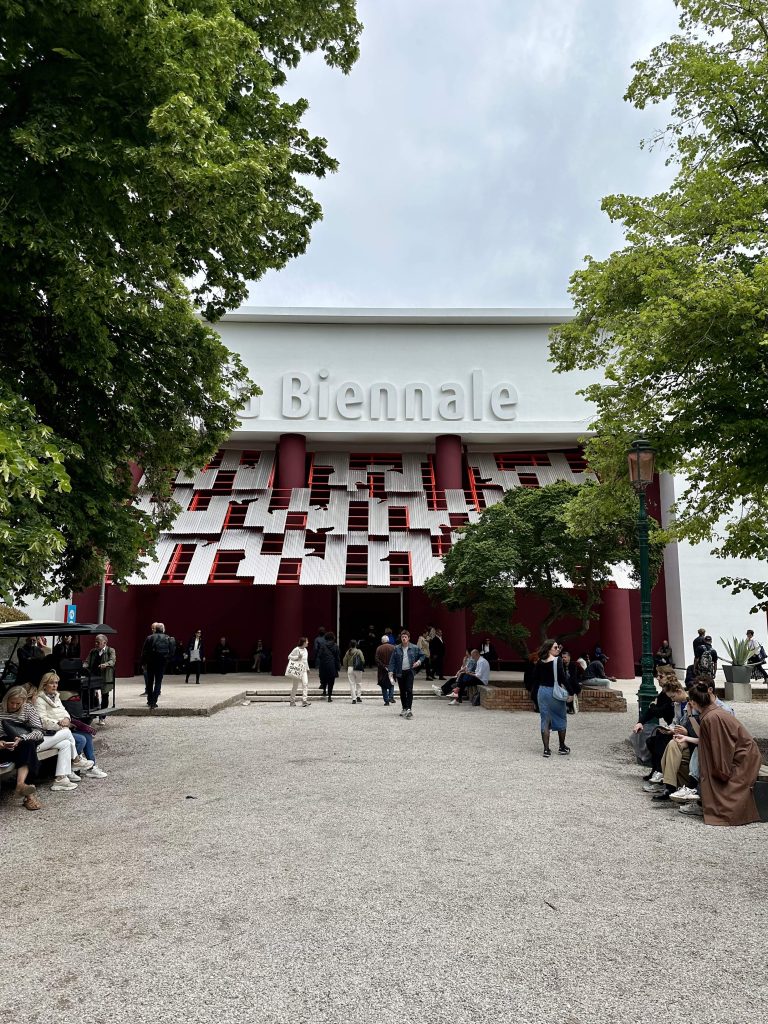Paris 2024: Solidarity and Inclusivity
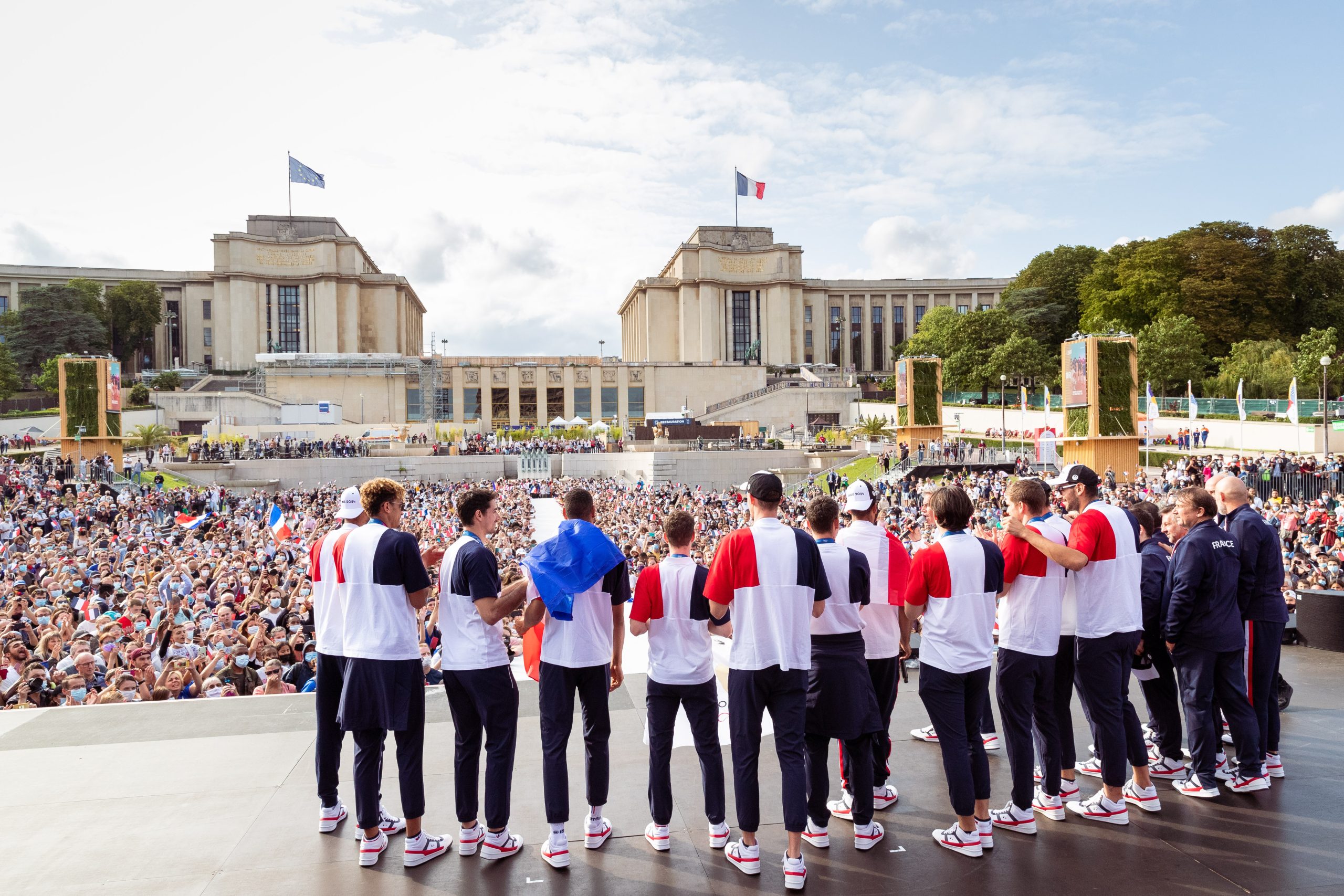
In July 2024, the Summer Olympic Games take place in Paris. They are being advertised as the most inclusive as well as sustainable Games yet. But how do they plan to implement it?
Billboard
Skyscrapper
Halfpage
The 2024 Summer Olympic Games will be in Paris from 26 July to 11 August 2024. Paris 2024 will be the third time the French capital has hosted the event after 1900 and 1924. Read here everything about planned architectures, its meaning for urban planning and public transport.
Promoting regional development in Seine-Saint-Denis
Paris has won the bid to host the Olympic Summer Games in 2024. They will take place in July and August 2024 in Paris and several other French cities. This will be the third time that the French capital is hosting after 1900 and 1924. Key to the city’s concept is to mostly use existing or temporary venues. 95 per cent of them are going to be cost-effective and compact.
Paris hopes that the Olympic Games will accelerate regional development, especially in the department of Seine-Saint-Denis. This youthful and cosmopolitan area will see the creation of new infrastructure and the construction of eco-neighbourhoods. Renovated local sports facilities and new green spaces will endure as Olympic legacy. The Olympic and Paralympic Village in Pleyel (Bord de Seine) as well as the media village will promote urban development in Seine-Saint-Denis through the construction of 4,500 housing units. In total, Paris will receive 50 new sports centres, 11,000 new homes, 120,000 m² new offices, and 10 hectares of green space.
In addition, the Games will play a key role in fostering economic development, reducing regional inequalities, and promoting local development. According to the official Paris 2024 website, they will offer training, jobs, and degree courses to youth living around the Olympic village. Over 250,000 new jobs will be created in connection with the Summer Games.
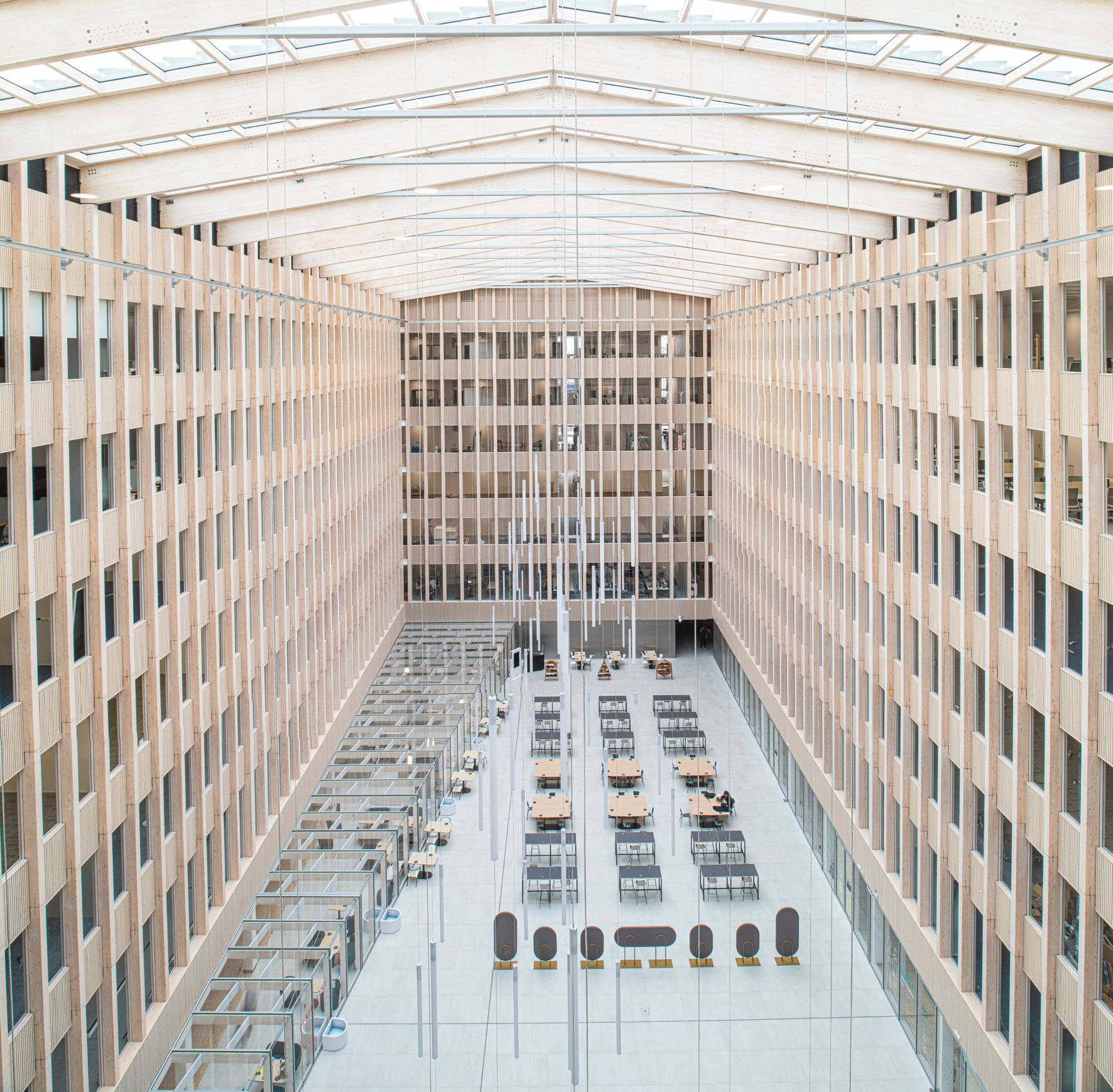
Paris 2024: The most inclusive Olympic Games to date
The focus of the Paris 2024 Olympic Games will be solidarity and inclusivity. Developed in collaboration with Muhammad Yunus, 2006 Nobel Peace Prize winner and expert in social justice, the Games will be a project shared by all. They have the aim of being in service of the population and supporting Yunus’ triple zero objectives: zero poverty, zero unemployment, and zero net carbon emissions.
To achieve this, Paris 2024 wants to facilitate the social and professional integration of people struggling with unemployment. Organisers will also include social enterprises in the economic dynamic of the Olympic Games. The Paralympic Games, set to take place just after the Summer Olympics from August to September 2024, will provide full accessibility to people with impairments. Paris has the ambition of changing society’s gaze on disability. There will be spotlights on para-athletes, sporting and cultural events mixing abled and disabled participants, and a “Olympic and Paralympic Week” in schools.
Another element of Paris’ preparations for the Olympic Games will be the increased accessibility of transportation through shuttles, accessible taxis, and wheelchair ramps. They will also recruit and trin disabled volunteers and provide the first-ever 100% accessible Paralympic Village. There will be a 360-degree experience for spectators including audio commentary and ticket option for accompanying persons.
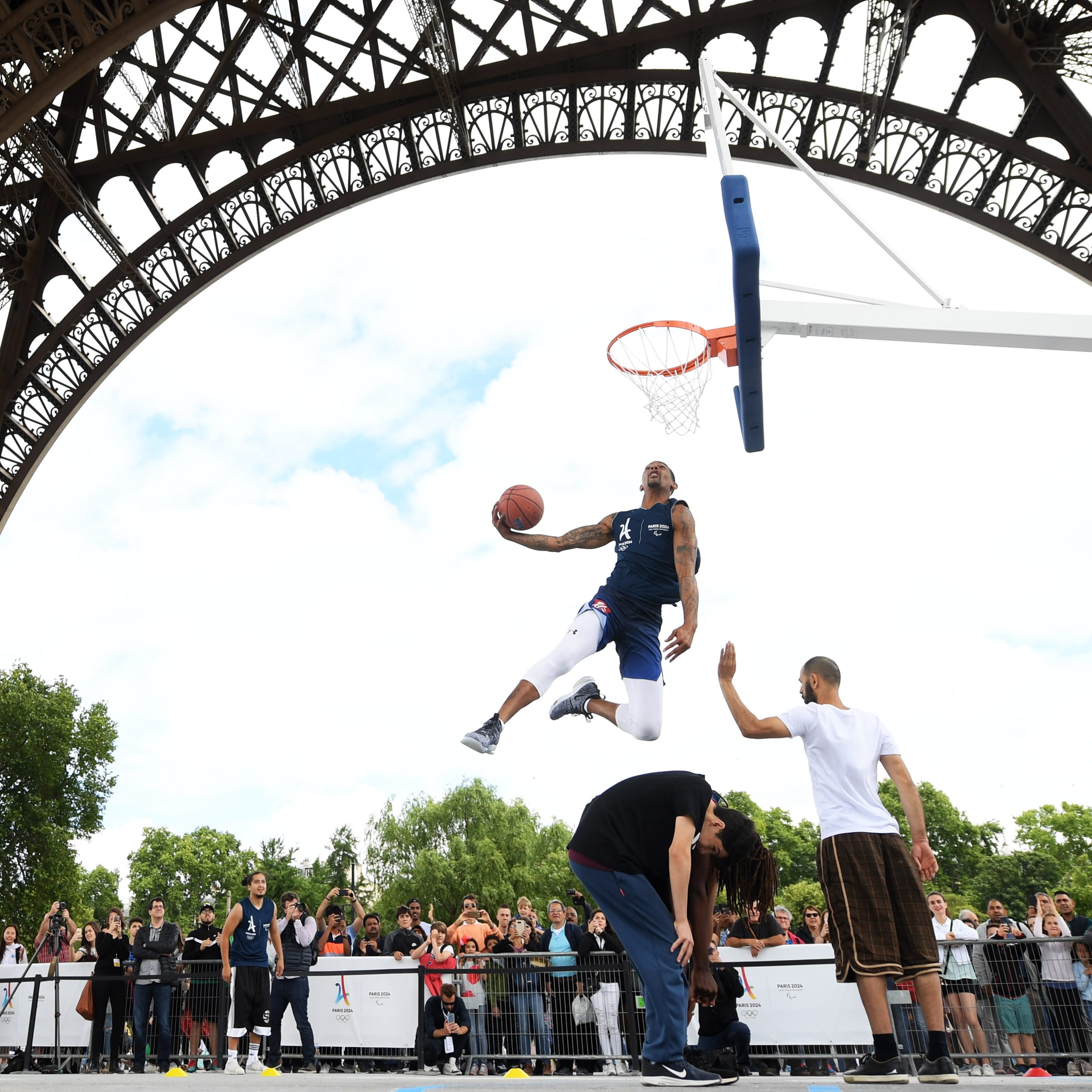
Sustainable games without air conditioning
The 12th Biennale of European Cities and Urban Planners hosted the theme: “Cities and the Olympic and Paralympic Games – how can world events benefit the hosting populations?”. A representative of Paris 2024 spoke about the future heritage that the games will bring to Parisians, especially spatial and intangible heritage. The Olympic, Paralympic and Media village will form two new urban areas close to new Grand Paris stations. Various elements will provide valuable sporting sites for residents: The Olympic Aquatic Centre with its high energy efficiency, seats made from plastic waste and the renovation of sports facilities. In terms of intangible heritage, the Olympic Games will create a more sports-active society that values inclusivity and solidarity.
Another important part of the Olympic heritage in Paris will be environmental. The Games will be “green”, including the renunciation of air conditioning and a riverside opening ceremony. This, according to the organisers, will slash emissions in half and make a positive contribution to the climate.
However, environmental groups are not convinced, because new infrastructure is not conducive to making the games sustainable or “green”. Also, all the international travel as well as the strains on resources add to the implausibility.
They might manage to halve the emissions compared to past games – the aim is 1.6 million tonnes of CO2 equivalent compared to the 3.5 million tonnes average from London 2012 and Rio 2016.
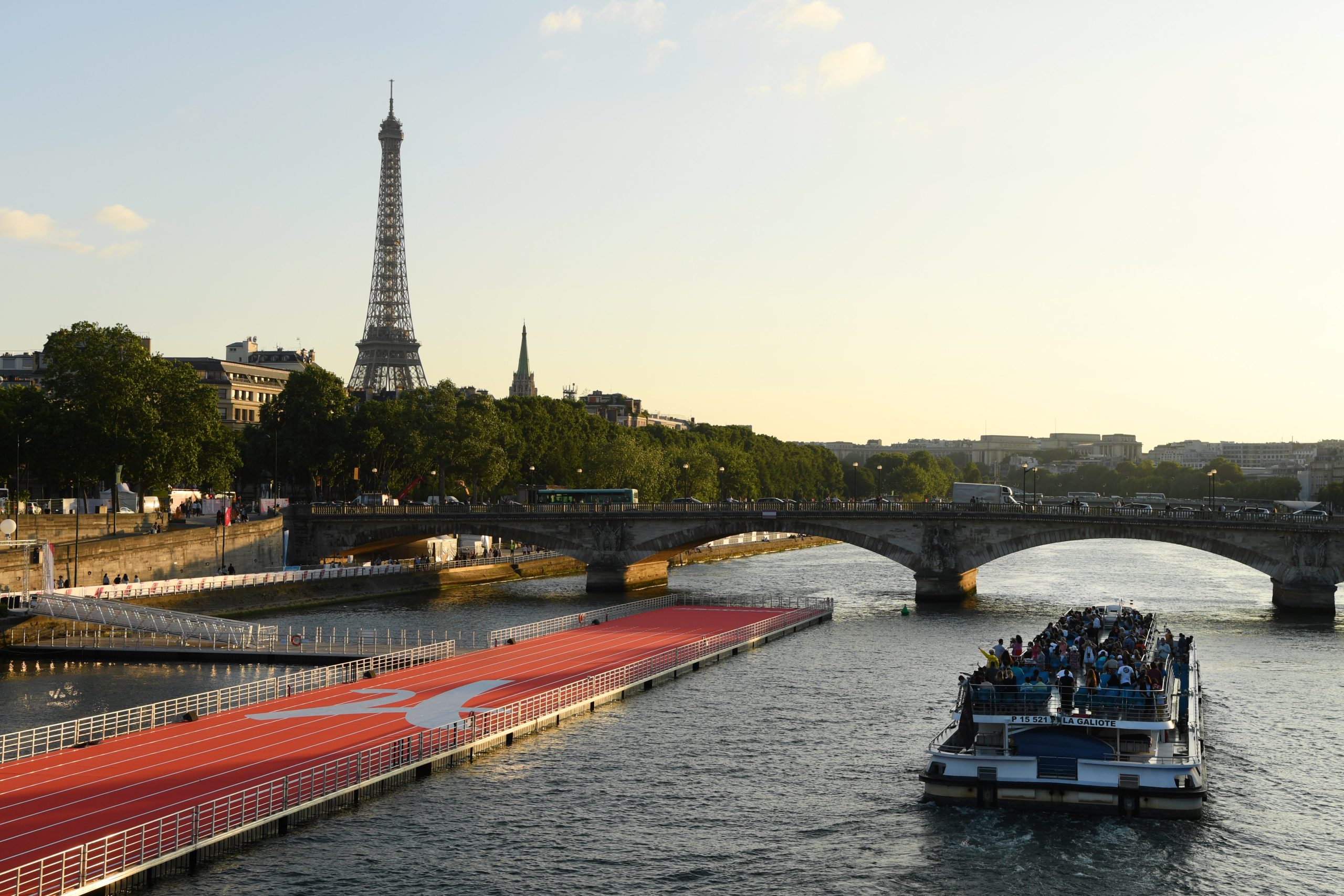
Can big international events like Paris 2024 ever be sustainable?
Paris is also looking to limit its construction footprint in the Olympic Games by focusing on existing or temporary infrastructure. Because many sites have been chosen for their good public transport links, it should help to curb emissions. Wherever possible, electricity will come from renewable sources. And “low carbon” menus for spectators will include dishes with less meat.
But carbon offsetting is another important part of the strategy. Nevertheless, this somewhat problematic solution does not address the root of the problem. Reforestation projects and similar offsetting endeavours are hard to qualify and vulnerable to change. In fact, they can distract from more sustainable options. Furthermore, they sometimes even have a negative impact on formers or indigenous people, according to the independent watchdog organisation Carbon Market Watch.
While the sustainability efforts have been applauded, sports experts point out that no big international event can really be sustainable. The most sustainable events are the ones that do not happen. Therefore, claiming that Paris 2024 might even have a positive impact on the climate is misleading, since the event itself will generate greenhouse gases that are bad for the climate.
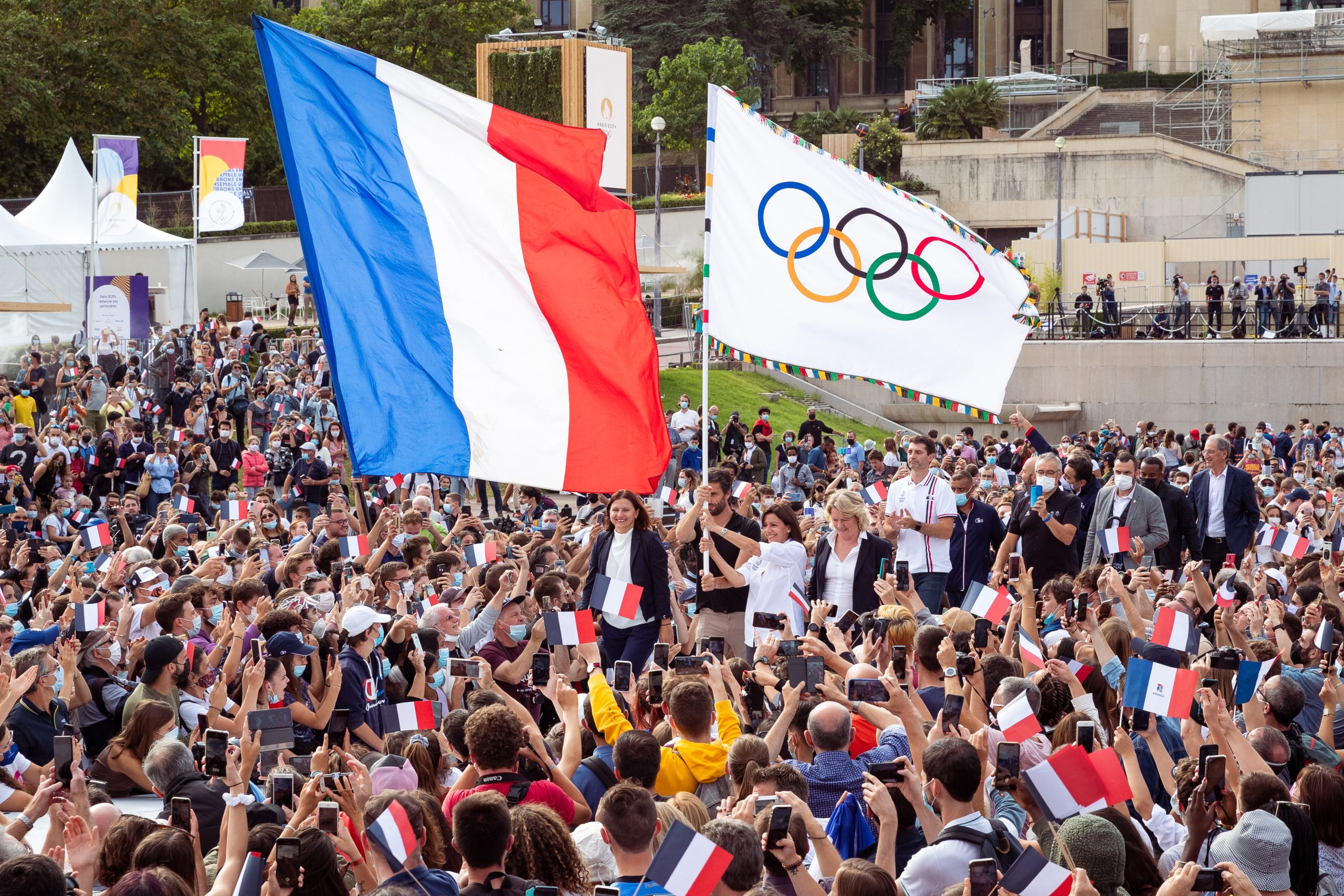
Towards an Olympic Urbanism?
An underground water-cooling system beneath the Athletes Village will showcase an innovative solution to urban heat. Besides, it is similar to the one that helped the Louvre stay cool during past summer heatwaves. Organisers have been studying the heatwaves and tested the effectiveness of the cooling system. And they aim at keeping the indoor temperature between 23 and 26 degrees Celsius. Also, additional insulation will enable residents to keep cool.
Further, the games expect to receive 15,600 athletes and sport officials. Afterwards, the 50-hectare site of the Athletes village will become a zero-carbon, eco-friendly residential and commercial neighbourhood for up to 6,000 people. The first ones might move in as early as 2025. Through this, Paris 2024 hopes to contribute to an “Olympic urbanism”.
In the end, according to a study in the journal Nature in 2021, there are three actions that could make the Olympic Games more sustainable. Those are:
- significantly reduce their size
- rotate the Games between the same cities
- implement independent standards of sustainability.
In brief, Paris is currently not meeting these requirements. But it does have a much more sustainable and inclusive approach than when it last hosted 100 years ago.











